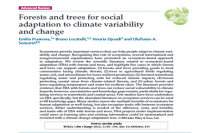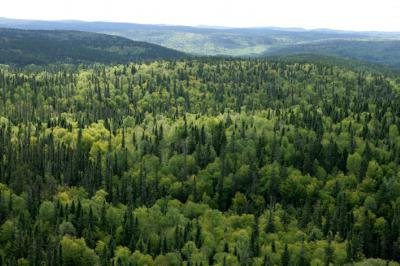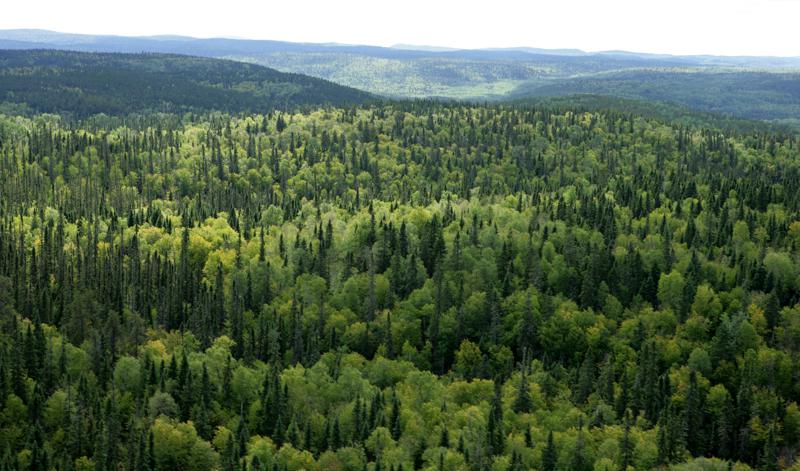Forest
A forest ecosystem is typically defined as a natural woodland unit, consisting of plants, animals, micro-organisms and fungi. There are hundreds of different forest types, resulting from the complex interaction of biological, physical and chemical components. All human communities benefit from the world’s forest ecosystems services, including, among many others, air purification, carbon storage, recreation and pharmaceuticals. Forest ecosystems are inherently resilient. However, more severe and frequent disturbance resulting from climate change may present serious challenges. An ecosystem-based approach, focused on protecting and restoring forests, can make a vital contribution to both climate change adaptation and mitigation.










